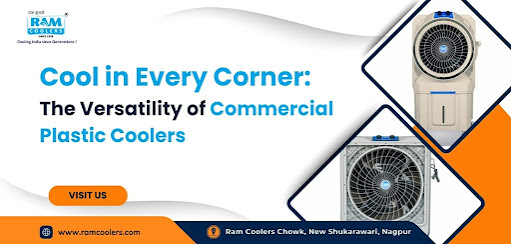The Benefits of using a Centralized Air-Cooling System
Introduction
Your facility can be kept cool in a variety of ways. When it comes to efficiency, cost-effectiveness, and overall performance, a centralized air-cooling system stands out as the best option. This system is designed to cool large areas or entire buildings, making it the perfect solution for hospitals, schools, offices, and other large public buildings.
This blog post will explore the many benefits of using a centralized air-cooling system and why it may be the perfect choice for your facility. From energy savings and improved air quality to scalability, precise temperature and humidity control, and reduced maintenance costs, there are many reasons why a centralized air-cooling system is an intelligent investment.
In this blog post, we’ll dive into these benefits in more detail so you can decide on the best cooling solution for your facility.
Energy Efficiency
Centralized air-cooling systems are designed to cool large areas or entire buildings, which means they have a larger cooling capacity than smaller, decentralized units. This allows them to cool the space more efficiently, reducing energy consumption and costs. Additionally, centralized air-cooling systems tend to have better insulation and weather sealing, reducing energy loss and improving efficiency.
Improved Air Quality
Because the system is located in one central location, it is easier to access and maintain the filters. This means the filters can be changed more frequently, improving the facility’s air quality. This is especially beneficial for facilities such as hospitals, schools, and other public buildings, where the health and well-being of the occupants are a top priority.
Scalability
Centralized air-cooling systems can be easily scaled up or down to accommodate changes in the facility’s size and cooling needs. This flexibility benefits facilities in a state of flux, such as research and development centres, where the cooling needs may change rapidly.
Better Temperature and Humidity Control
Centralized air-cooling systems offer a higher level of control regarding temperature and humidity in large buildings or facilities. These systems allow for precise temperature control, ensuring the facility remains comfortable throughout the year. It also makes maintaining the optimal humidity level more manageable, which is vital for protecting sensitive equipment and materials.
Reduced Maintenance
Centralized air-cooling systems require less maintenance than decentralized systems. Because these systems have fewer moving parts, there is less wear and tear, which means they last longer and require less maintenance, ensuring that the system is running at peak efficiency and prolonging its lifespan. Additionally, because the system is located in one central location, it is much easier to access care and repairs, reducing maintenance costs and downtime.
Cost-Effectiveness
Centralized air-cooling systems are cost-effective in the long run. They are usually less expensive to install than multiple smaller air conditioner units and require less maintenance and repair work. Additionally, the energy savings centralized air-cooling systems provide can lead to significant cost savings over time.
Improved Indoor Air Quality
Centralized air-cooling systems can improve indoor air quality by removing pollutants and allergens. These systems can be equipped with advanced air filters that can effectively remove dust, pollen, and other contaminants from the air, making the indoor environment cleaner and healthier.
Reduced Noise
Centralized air-cooling systems are typically less noisy than multiple smaller units. As the unit is placed far from the actual cooling area and air travels through the ducts, they will be very silent and without any noise disturbance. This can be especially beneficial for libraries, schools, and offices, where a quiet environment is essential for productivity.
Conclusion
When choosing an air-cooling system, it’s essential to consider factors such as sizing and capacity, energy efficiency, indoor air quality, maintenance and repair, and scalability. Centralized air-cooling systems offer several benefits over traditional cooling methods as well as over air conditioning; especially significant energy efficiency, improved indoor air quality, cost savings, easy maintenance, space-saving design, and scalability. These systems suit quite well for various applications including; data centres, industrial facilities, commercial buildings, and healthcare facilities. With the right system in place, you can keep your building comfortable and energy-efficient for years to come.
If you have any questions about air coolers, you can contact the specialists at Ram Coolers. Depending on your specific needs and requirements, our team can guide you to the most suitable product for your situation, and we can design the best cooling solution for you.
You can browse through our products available at: https://www.ramcoolers.com/
If you have any questions, you can write to us @: info@ramcoolers.com
You can also call us at: 9392035377 (Office timing 11:00 am to 8:00 pm).




Comments
Post a Comment